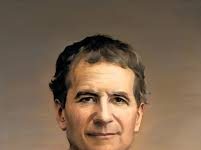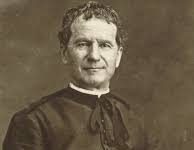A blessed feast of Our Lord’s Baptism to all our readers! In the midst of a world gone mad, ’tis incumbent that we Catholics keep our wits and our joy about us, which includes keeping our eyes on the ‘one thing needful’, on eternity, the end and purpose of it all, by living liturgically, in the company of Christ, Our Lady, Saint Joseph and all the saints through the year. The spirit and beauty of our liturgical tradition is a gift beyond price.
We have talked of William Byrd before in these pages, was an unabashed Catholic composer during the tumultuous time of the ‘Reformation’ – more properly, the revolt in England and across Europe against the Roman Catholic Church, to which the the great musician belonged. He was born in during the dying days of Henry VIII, and lived through the Tudor reign of his children – Edward VI, Mary Tudor, the long-lived Elizabeth, and then to James I. Somehow, like his contemporary genius Shakespeare, Byrd kept his Catholic faith, his head and his freedom – not least, since he was the greatest composer of his age, perhaps that England has ever produced.
As we draw close to the end of Epiphanytide, here is Byrd’s meditation on the Three Kings, Reges Tharsis, first published in 1607, the text of which, drawn from Psalm 71 used at Mass over the past week, runs as follows:
Reges Tharsis et insulae munera offerent,
reges Arabum et Saba dona
(domino Deo) adducent.
Et adorabunt eum omnes reges terrae,
omnes gentes servient ei.
And, since Baptism makes saints of us all – at least for a time, and for all time, if we cooperate with the grace so offered – here is Byrd’s magnificent Laudibus in Sanctis, first published in 1589, based on psalm 150, and the first of three parts of a cycle. There are hints herein of the Elizabethan persecution of Catholics, tribulatio proxima est, but offering hope amidst trials, that the Lord in the end will triumph; we may ponder its resonance in our own day. Here is a performance by the vocal ensemble Voces8, about which there are few words to describe the perfection of their performances.












